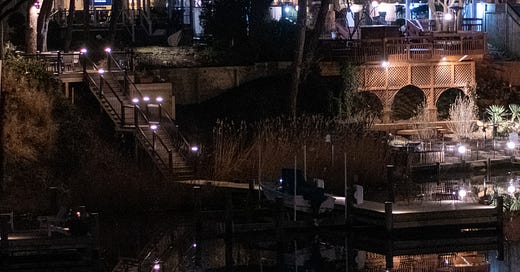The shock continues following former President Trump’s threats against NATO allies regarding the 2% target for spending on defense. I received one response from a keen reader who regularly provides me more overall thought than anyone else these days. He was somewhat sympathetic to the argument the former president makes., expanding the concern to say the cooperation between ‘worker bee’ level folks working in the Alliance is not what it could be. Europeans remain somewhat aloof (my word for what I read) on intelligence sharing and the day-to-day administrative cooperation essential for the Alliance to function.
I don’t have experience as I am not a Europeanist (I have never even set foot in Belgium, much less the majority of the Continent). I do recognise that Europeans have always appeared more keen on some of the social nice-ities of cooperation in their cheek-to-jowel world that many Americans find over-the-top. Obvioiusly Brits, with their 2016 referendum to Leave the European Union, strongly distrust some of what occurs on the Continent as well. Perhaps my reading of things—not what I am seeing in responses to my ACC columns—is fundamentally off but I do see Continentals trying to avert their history of repeated warfare through any means possible, including wine and croissants. Or, perhaps that is only the EU types. (Feel free to correct me if this distinction doesn’t appear valid to those of you who lived it.)
I do note a repeated respect throughout a range of sources, including the noted response, about Poland and its commitment to NATO, if not its current outlook. Our aforementioned reader experienced a superb, enduring commitment by Poles in supporting the Alliance’s creed and targets. Other comments I have read in a couple of chat rooms where I participate similarly note the determined steps Warsaw takes to assure NATO is the strongest it can be, especially in the face of the past 103 weeks’ conflict in a bordering state.
A former colleague at the National War College who works closely with Poles deeply respects Poland and its enduring efforts to solidify collective defense while simultaneously annoying Putin. This fellow counted Vlad the Impaler mentioning Poland 43 times during the two hour televised lecture to Tucker Carlson last week. The observer surmised ‘Poland is living rent-free in Putin’s mind’, an absolutely charming phrase for what we heard even if I didn’t bother counting the mentions.
Poland joined the collective organisation in March 1999, currently contributing 2.2% of its GDP to its national defense. Poles have been attending Joint Professional Military Education courses across the world and readily acknowledge that true defense requires cooperation, dedication, and consistency. Poles buy arms to assure interoperability with NATO partners. Poles walk the walk, as the phrase goes.
Poland knows how brutal the Russians and others in Europe can be. Repeated incursions over the centuries dramatically threatened the country. Indeed, the Molotov-Ribbentrop Nonaggression Pact in August 1939 provided the legal pretext for Berlin and Moscow to eradicate the Polish nation, particularly aiming to exterminate millions of Jews. The Nazi invasion of sovereign but defenseless Poland on 1 September 1939 ignited the worldwide war when Britain mobilised on Warsaw’s behalf. The conflagration ultimately consumed so much of the world, killing tens of millions while destroying economies, lives, and societies.
Poles understand that to have protection a state must pay for protection. Poles could not avoid the Soviet expansion following the war’s end, falling behind Churchill’s declared Iron Curtain between 1945 and 1989. But some of the earliest protests against Soviet rule in the 1980s resulted from within the Polish communist state so repressing labour, the Catholic Church and the national ethos. When the Wall fell in November of 1989, Poles welcomed the chance to experiment with national governance under a range of political parties. Today, Warsaw has both relatively diversified and high growth economic conditions in a parliamentary republic. The Polish Republic proudly joined the European Union in 2004, a mark of its transformation after decades of conflict and economic turmoil.
We ought not be surprised Poland is relatively prosperous today, thus willing and able to support the NATO targets. Poland is also an example of actions creating consequences: Poles learned the history of being unable to protect themselves and the vulnerabilities of economic mismanagement from too centralised an economy. Their willingness to power through the 1990s pain of ‘Shock Therapy’ allowed them to thrive today, as the national experience of communism over the decades had proven wearying.
Ukraine and many other states formerly under the Soviet ‘Iron Curtain’ still struggle with institutional development and fully embracing democratic principles. Poland could, of course, fall off the current path it but appears perhaps the largest successful transformation of the post 1990s. It’s joyful to find a success to prove these actions benefit a nation of 40 million with whom we work closely through the NATO partnership. Poland also offers a solid model of why institutions such as the Church can provide an anchor in other societies around the globe still struggling to firmly implant a truly competitive, sustained representative governance system.
Thoughts? Have you been to Poland? Did you see it this way? Do you think history spurred them to repudiate past steps or is Poland simply sui generis for other reasons in the post-Soviet world? I welcome your analyses and criticisms. This is not my specialty so I can learn much from your views.
I appreciate you reading ACC this afternoon. Here are some photographs I shot last night when I found the reflections fascinating on the Creek (No, not everyone watched the Super Bowl. As a Kansas Citian, I worry perpetually they will disintegrate).
Be well and be safe. FIN
‘Poland’, CIA World Fact Book 2024, www.cia.gov, retrieved at https://www.cia.gov/the-world-factbook/countries/poland/#introduction





